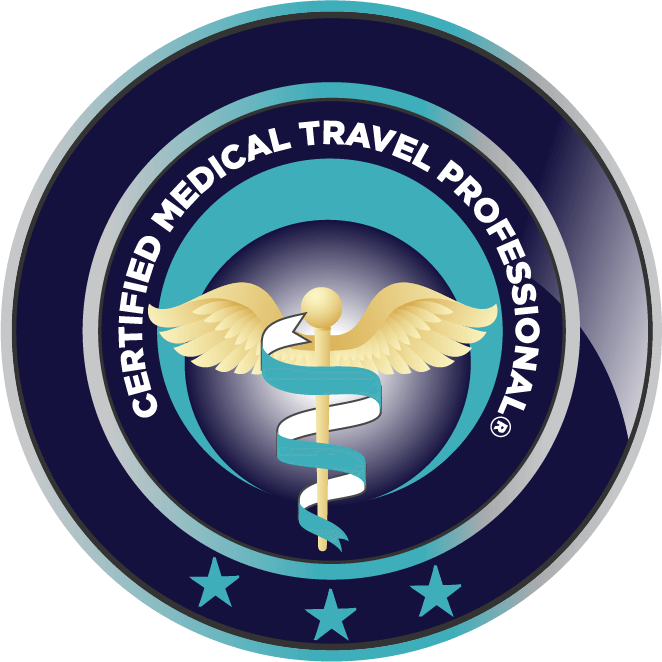Mental Rehabilitation
Psychiatry is a medical specialty that focuses on the diagnosis, treatment, and prevention of mental, emotional, and behavioral disorders. It involves understanding and addressing the biological, psychological, and social factors that contribute to a person's mental health.
Our highly qualified professionals are ready to provide you with individual care in solving various psychological challenges. With an emphasis on your specific needs, they will support you on the way to achieving progress and maintaining mental health.

List of problems that you can solve with us
1 ADHD
ADHD is a neurodevelopmental disorder characterized by difficulty in concentrating, increased impulsivity, and hyperactivity. This disorder usually starts in childhood and turns into feelings of inner restlessness, anxiety, or reduced ability to regulate emotions in adulthood. Symptoms of ADHD in adulthood can cause challenges in everyday functioning - especially in the organization of professional and personal life.
2 Bipolar disorders
Bipolar disorder is a serious mental disorder characterized by periodic changes in mood, vitality, psychological functions, and overall normal functioning of the organism. In the depressive episode, decreased life energy, loss of interest, sleep disturbances, changes in appetite, slowed psychomotor pace, pessimism, impaired concentration, feelings of helplessness, hopelessness, and even thoughts of death are the most common symptoms. In a manic episode, it is common to feel absolute happiness, unnatural energy, and decreased need for sleep.
3 Depressive states
Depressive states are accompanied by long-term sadness and apathy due to which a person loses joy in things and activities that brought him joy until then. Depressive states are characterized by despondency, decreased vital energy, loss of interest, sleep disturbances, changes in appetite, slowed psychomotor pace, pessimism, impaired concentration, feelings of helplessness and hopelessness, and even thoughts of death, which can lead to suicidal tendencies.
4 Phobias and anxiety
In everyday life, to a certain extent, anxiety is normal. Its function is to alert us about a possible threat. If feelings of anxiety are disproportionate to the situation, intense and constant, they are very unpleasant. If it disrupts normal life functioning, we are talking about anxiety disorders and phobias. They are accompanied by a morbid fear of a certain phenomenon, person, animal, or situation.
5 Emotional instability (anger management)
Emotional instability is characterized by mood swings of varying intensity. Commonly, impulsive and even aggressive behaviors occur. For emotional instability, it is typical that the person has unclear boundaries in life, it is difficult to understand oneself, and it is common to start intense relationships that are soon rejected, accompanying feelings of emotional crisis, fear of loneliness, and self-harm.
6 Unmanageable grief (loss of a loved one)
The loss of a loved one usually causes a whole spectrum of psychological reactions, including limiting social involvement, deep grief, doubts about one's role in life, and feelings of loneliness. Inability to experience joy, feelings of guilt, the need to punish oneself, hopelessness, and despair can appear and persist for an unreasonably long time which limits a person's functioning in normal life.
7 Obsessive Compulsive Disorders (OCD)
OCD are very common anxiety disorders characterized by so-called intrusive thoughts (unwanted, repetitive thoughts, obsessions) and/or compulsive repetitive actions (compulsions). Both are difficult to control.
8 Panic attacks
Panic attacks are characterized by a repeated rush of intense anxiety and fear that something bad will happen. Unlike phobias, they are not tied to a specific situation, they can occur anywhere and at any time. Individuals with panic attacks describe a feeling of separation from the world, unreality, palpitations, bleeding in the peripheral parts of the body, feelings that some part of their body is not theirs, etc.
9 Eating disorders
Eating disorders are associated with the inability to take in adequate amounts of food and are closely related to an inappropriate and often inaccurate perception of one's own body (damaged self-image). The most common eating disorders are anorexia nervosa, which is characterized by refusal to eat, and bulimia characterized by intentional vomiting.
10 Adjustment disorders
Adjustment disorders follow a significant life change or stressful life event. Adjustment disorders are characterized by subjective distress and other emotional challenges that disrupt social functioning and performance in important life roles.
11 Sleep disorders
The term "sleep disorders" refers to a group of conditions that affect the quality, timing, or duration of sleep. Sleep disorders can range from difficulty falling or staying asleep to even abnormal behavior during sleep. They represent a serious problem often related to external conditions in the environment - such as an irregular schedule and internal conditions - such as an increased level of stress, anxiety, etc.
12 Post Traumatic Stress Disorder (PTSD)
Post-traumatic stress disorder (PTSD) refers to a delayed or prolonged reaction to a major or prolonged stress or threat. Sleep disturbances, nightmares, limited ability to express emotions (e.g. inability to love or cry), irritability, or fear for oneself and one's health may appear. Also, flashbacks to traumatic events can occur.
13 Psychoses and schizophrenia
Psychosis is a serious mental condition that can be defined as the inability to act in harmony with the world around you. It is a dissociation between perception, behavior, and experience. The patient's relationship to reality changes. Schizophrenia is a mental disorder characterized by a failure of thought processes and a reduced ability to perceive and respond to emotions. It is most commonly accompanied by auditory hallucinations, paranoid or confused speech, and thinking. It goes hand in hand with extensive social or work dysfunction.
14 Self-harm
Self-harm, or self-mutilation, is intentional physical harm to oneself. Reasons for self-harm can be various: problems in the family, bullying, breaking up with a partner, aggression, etc. Among the most common ways of self-harm are cutting with sharp objects or burns (typically on the wrist or forearm), but also pulling out hair, biting nails, etc.
15 Stress disorders
A stress disorder arises as a reaction to exceptionally strong physical or psychological stress. This stress can be very intense but also of lower intensity - but long-lasting. Stress disorder can develop even when a person has no history of mental illness. The course is short-lived, usually disappearing after a few hours or days at the most. The triggering factor is most often a strong experience associated with the threat of danger.
16 Addictions
Addiction is a long-term, permanent relationship with something or someone based on a strong desire to satisfy needs through them. Addiction affects a person's behavior and limits a person's freedom. Among the most common addictive substances are alcohol, tobacco, and other drugs. However, addictions also include activities to which a person devotes a lot of time at the expense of normal social functioning and with negative consequences on one's mental and physical health.
Where is mental rehabilitation provided?
Mental rehabilitation services are offered at Mental rehabilitation center.



















